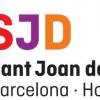
Report - 1st day of the International Congress on the Effects of COVID-19 in People with Rare Diseases
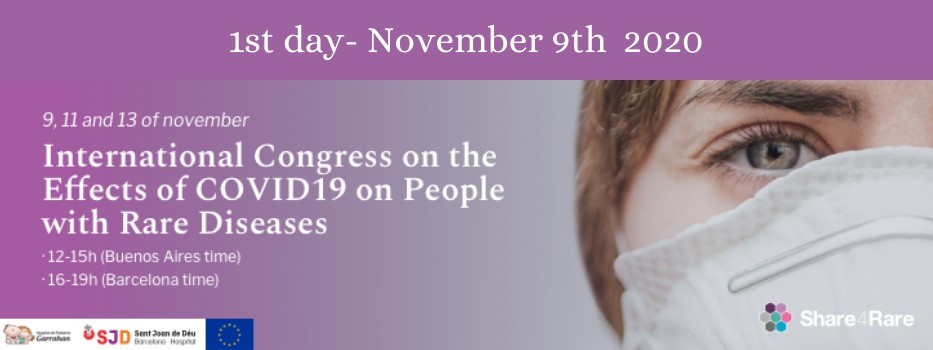
The opening of the congress was led by Patricia García, medical director of the Garrahan Hospital, a reference centre for rare diseases in Argentina. García explained the challenge that COVID-19 represents for people affected by rare diseases and emphasized the need to generate social healthcare networks to ensure a correct diagnosis, follow-up, treatment and rehabilitation of this community of patients.
Vaccines: What are they and how are they produced?
The first panel of the afternoon was dedicated to the future COVID-19 vaccine.
Dr. Roberto Debbag, vice president of the Argentinian Society of Pediatric Infectology, started the session by explaining how deforestation and increasing proximity of humans to animals is an accelerating factor that can lead to pandemics becoming a quotidian reality. Hence, it is importance to transmit society its benefits and build a solid confidence on this prophylactic method.
Subsequently, the presentation of Pfizer representative Dr. Fernando Polack took place, precisely the same day that the company announced an effectiveness of 90% of its future vaccine. He explained that the vaccine is made of viral messenger RNA, that there are no approved RNA vaccines yet and that this type of vaccines represent a huge technological innovation.
The vaccine-related myths and misinformation were a recurring topic throughout the session and all professionals showed a great concern at this growing trend. During his speech, Dr. Quique Bassat from Sant Joan de Déu Children’s Hospital and ISGlobal, who is an expert in infectious diseases, emphasized that it is important to be cautious about the future vaccine because the number of doses available will be limited and prioritization must be based on ethical principles.
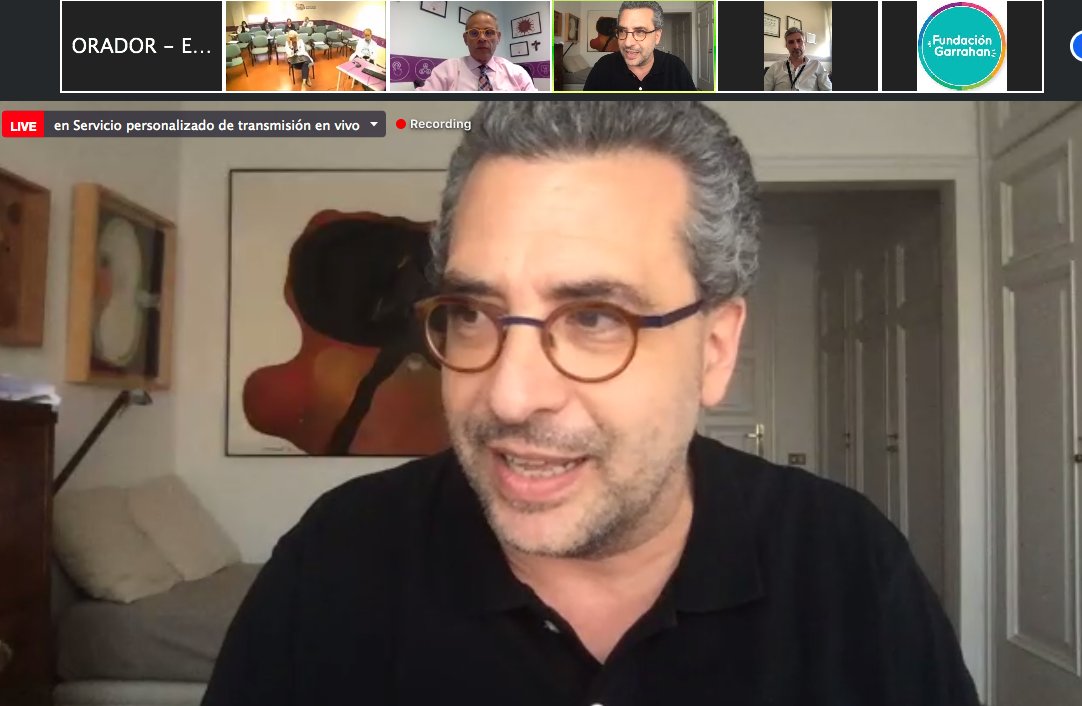
Bioethics: good practices in the use of ICT in the prevention, management and comorbidity of the disease
The second roundtable opened with the intervention of Celeste Savignano, Coordinator of TeleSalud and Distance Communication of the Argentinian Ministry of Health. Savignano explained how the construction of collaborative networks allows people with rare diseases to overcome barriers, allowing a more fluid communication and an early diagnosis, which is key in the prognosis of many of these diseases.
Begonya Nafria, from the Patient Engagement in Research Area at Sant Joan de Déu Foundation and coordinator of Share4Rare, explained how to implement a safe, confidential environment, aligned with all European data protection legislation, ensuring an ethical approach in research. She presented Share4Rare as an example of good practices in which, through artificial intelligence, users who share similar symptoms can be ethically contacted, enabling the sharing of experiences that would otherwise be almost impossible. The same platform is, at the same time, a place to promote knowledge, as it has several ongoing research projects including this registry of incidence of COVID-19 in rare disease patients.
Several speakers explained how the use of technology has helped to maintain healthcare assistance during the pandemic, and how it has humanized medical care. Fernanda Ledesma, coordinator of the Garrahan Bioethics Committee, highlighted the advantages of incorporating ICT in medical care, but she stated that we cannot forget about the digital gap and the importance of achieving equality in the access to technologies.
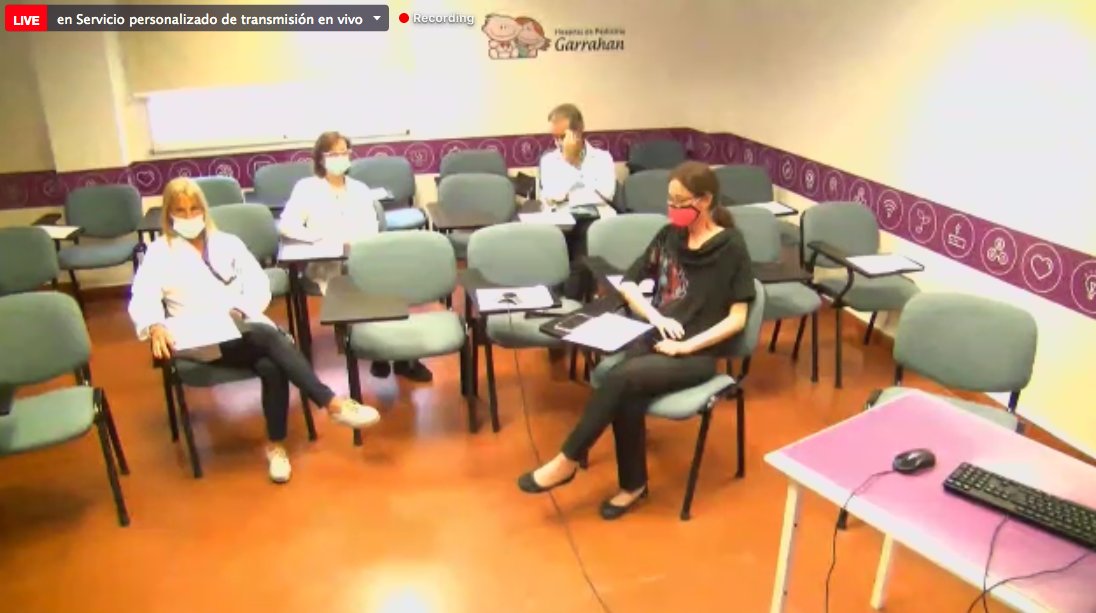
The effects of COVID-19 on children and schooling
Dr. Marcelo Andrade, pediatrician from Sant Joan de Déu and moderator of the third panel, started session with a brief description of the KIDS Corona research project, a research initiative of the hospital he represents.
The different presentations focused on describing studies and data on the impact of the pandemic on childhood in different countries, as well as the problems and tensions regarding schooling in times of COVID-19. Jordi Cruz, director the patients’ organization MPS Spain of and representative of FEDER (Spanish Federation of Rare Diseases), highlighted the importance of establishing an educational plan for people with rare diseases to ensure adequate schooling.
Lina Beltrán, from UNICEF Bolivia, presented an analysis of the effects of school closings in Latin America, Africa and Asia, showing how the pandemic has increased social inequalities in many parts of the world and how it can lead to a school dropout of a whole generation. The educational emergency focused the debate during the last session.
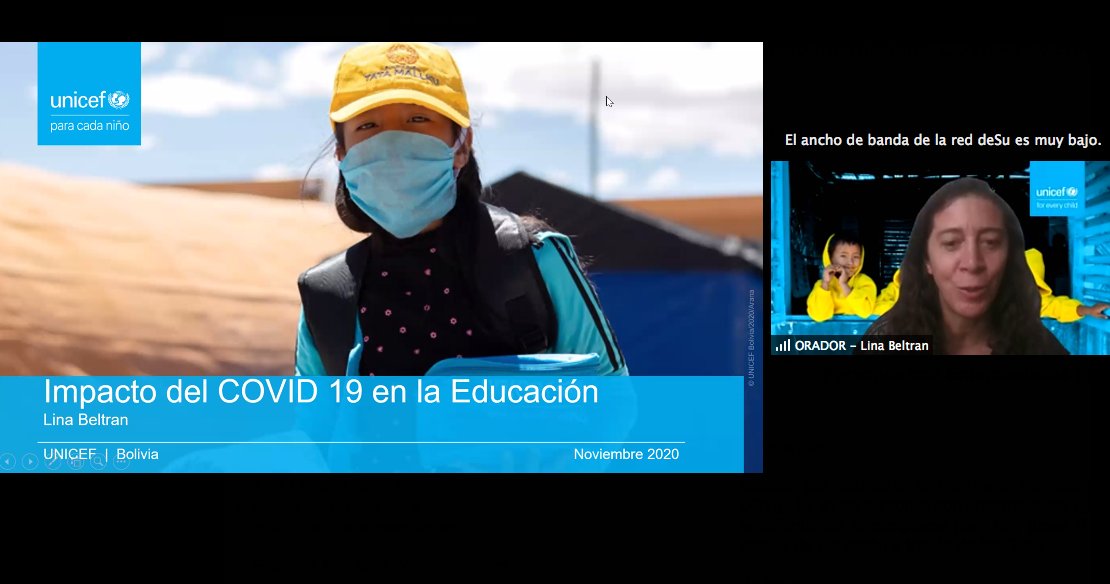
More than 600 people were registered in the event, which was also followed live on YouTube. The recording of the first day is now available on the Share4Rare YouTube channel.
